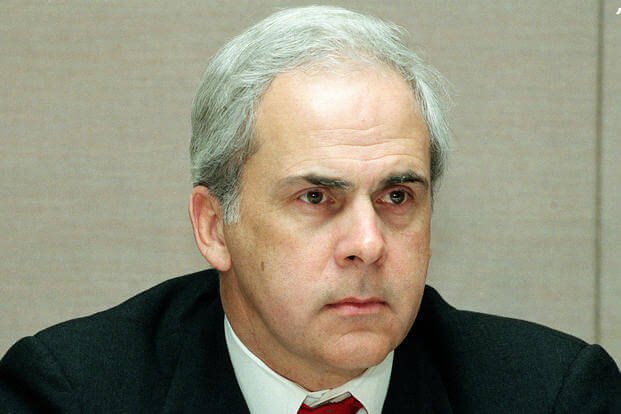In 1971, Fred Smith, a young Marine veteran just two years removed from combat duty in Vietnam, set up a company that guaranteed overnight delivery of goods between several U.S. cities. The firm, then known as Federal Express, began operations in March 1973. The first night's haul was seven packages. His network consisted of 11 cities.
Things have changed and not just the name.
When people ask what principles have guided me since I started the FedEx Corporation 35 years ago, my answer often startles them: It's the leadership tenets that I learned in the U.S. Marine Corps during my service in Vietnam.
That may not be the response you'd expect to hear in a Harvard Business School course. Like most other successful companies, FedEx places great stock in its fundamental business strategy; in the fact that we've filled a large -- and previously unmet -- need; in the key marketing decisions we've made; and in the innovative operational concepts we've developed.
From a tiny startup firm with just eight airplanes, we've grown into a global transportation company that earns more than $38 billion a year in revenue, employs almost 300,000 people, delivers millions of shipments a day and serves 220 countries.
Still, much of our success reflects what I learned as a Marine. The basic principles of leading people are the bedrock of the Corps. I can still recite them from memory, and they are firmly embedded in the FedEx culture. We teach them daily in our own Leadership Institute, which turns out the thousands of managers needed to run our operating companies.
I decided to join the Marines when I was a student at Yale. My father and three of my uncles had served in the military. The draft was part of every young man's life, and the antiwar movement hadn't begun. The Platoon Leaders Course offered me a chance to train in the summers, outside the academic year. I served two tours in Vietnam, from 1967 through 1969, starting out as a rifle platoon leader and later becoming a company commander and a forward air controller.
On a personal level, there are the little things. Even in a blue pin-striped suit, I still make sure that the right-hand edge of my belt buckle lines up with my shirt front and trouser fly. I shine my own shoes, and I feel uncomfortable if they aren't polished. I no longer sport a crew cut, but I keep my hair reasonably short. My kids would tell you I use some Marine Corps jargon, but that's another story.
I've also incorporated Marine Corps tenets into FedEx. If you were to drop in on one of our management training seminars, you'd recognize from your military days what's being taught. We tell our executives that the key to their success is to rely on their first-level managers (FedEx's counterparts of NCOs); to set an example themselves; and to praise in public when someone has done a good job. All these are standard operating procedure in the Marines, but they're a rarity in the industrial world.
In the Navy, a ship's captain flies Bravo and Zulu signal flags when his crew has done a good job. Our FedEx managers affix a sticker with BZ pennants on it to reports from subordinates that are particularly good. Workers who excel get to wear a BZ lapel pin, adorned with Bravo and Zulu flags. When an employee goes out of his way for a customer, he gets a "BZ check" of $150 to $200. Except for the bonuses, these practices come straight out of the Marine Corps Leadership Manual.
And although I'm chairman of the corporation, I can't get myself to cut into the line in the company cafeteria. Somewhere, a voice reminds me that a good officer lets his troops eat first.
What I learned from teachers such as Staff Sergeant Richard Jackson, killed in action, and Gunnery Sgt. Allen Sora -- two of the most competent and courageous people I ever knew -- has been of incalculable value to me.
As I look back from a perspective of more than 35 years, I understand better now that the confidence I felt when I joined my first platoon was well-founded. What the Marine Corps taught me can be seen every day in FedEx.
Semper Fidelis!
Want to Know More About the Marine Corps?
Be sure to get the latest news about the Marine Corps, as well as critical info about how to join and all the benefits of service. Subscribe to Military.com and receive customized updates delivered straight to your inbox.















